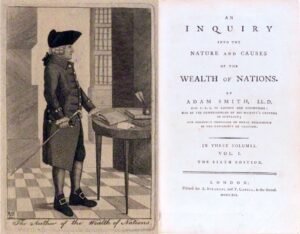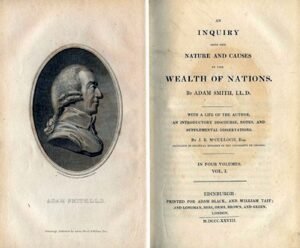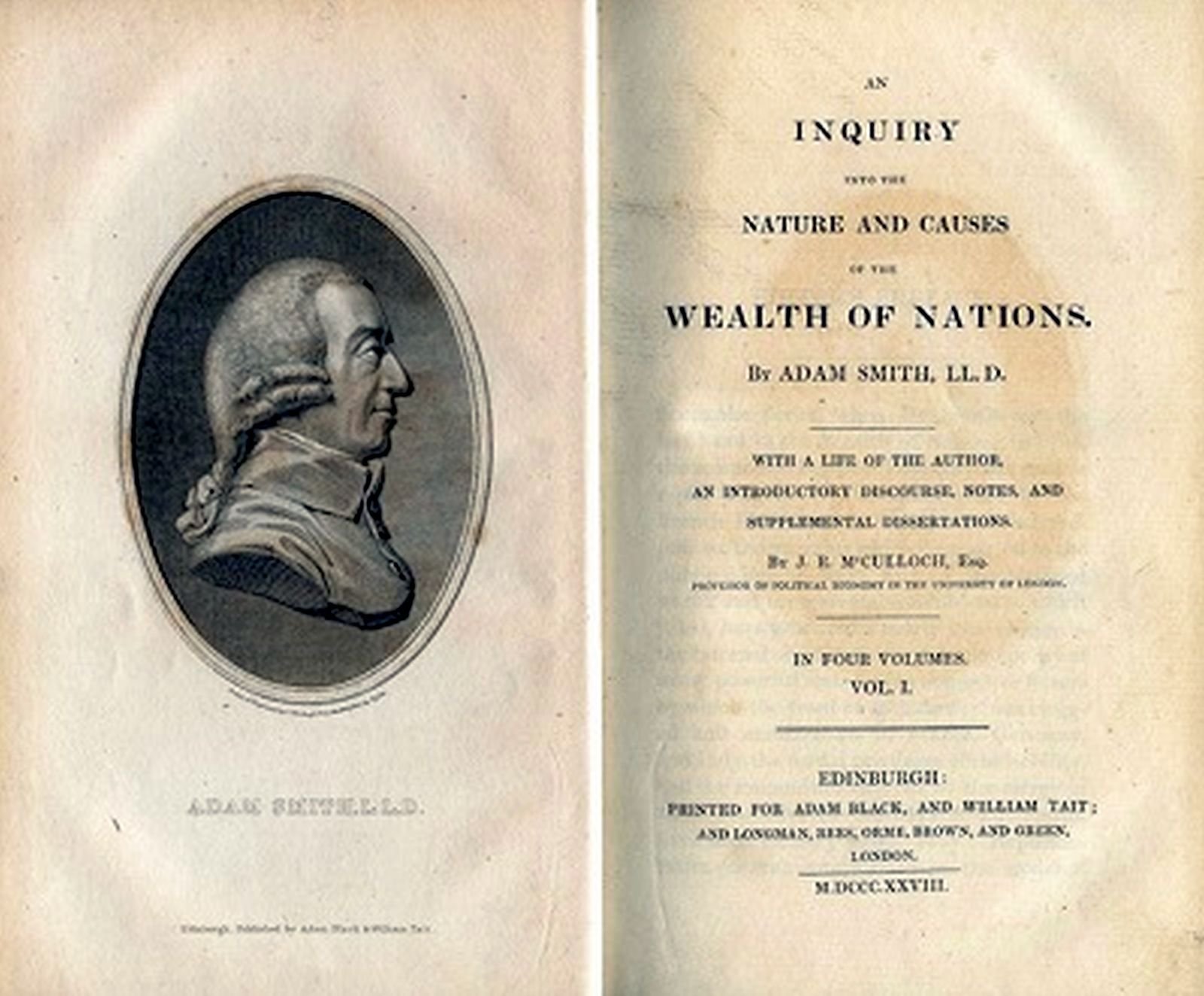“The Wealth of Nations,” a seminal work in the field of economics, was written by the Scottish economist and philosopher Adam Smith. Officially titled “An Inquiry into the Nature and Causes of the Wealth of Nations,” this book was first published in 1776 and has since become a foundational text in economic theory. Smith’s work laid the groundwork for classical economics and introduced concepts that continue to influence economic thought and policy today.

Background on Adam Smith
Adam Smith was born in Kirkcaldy, Scotland, in 1723. He studied at the University of Glasgow and later at Balliol College, Oxford. Smith was deeply influenced by the intellectual currents of the Scottish Enlightenment, which emphasized reason, scientific inquiry, and human progress. Before writing “The Wealth of Nations,” Smith gained recognition for his earlier work, “The Theory of Moral Sentiments,” published in 1759. This book explored human nature and moral philosophy, establishing Smith as a prominent thinker of his time.

Overview of “The Wealth of Nations”
“The Wealth of Nations” is a comprehensive treatise that examines the nature of wealth, the causes of economic growth, and the functioning of markets. It is divided into five books:
- Book I: Of the Causes of Improvement in the Productive Powers of Labour
- This section introduces the concept of the division of labor, which Smith argues is a key driver of economic efficiency and productivity. By specializing in specific tasks, workers can produce goods more efficiently, leading to overall economic growth.
- Book II: Of the Nature, Accumulation, and Employment of Stock
- Smith discusses the role of capital accumulation and investment in economic development. He explains how the accumulation of capital leads to increased production and the creation of wealth.
- Book III: Of the Different Progress of Opulence in Different Nations
- This book explores the historical development of economies, comparing the progress of wealth in various nations. Smith analyzes factors that contribute to economic disparities and the uneven distribution of wealth.
- Book IV: Of Systems of Political Economy
- Smith critiques mercantilism, the dominant economic theory of his time, which advocated for protectionist policies and the accumulation of gold and silver. He argues in favor of free trade and minimal government intervention in the economy.
- Book V: Of the Revenue of the Sovereign or Commonwealth
- The final book examines the role of government in the economy. Smith discusses public finance, taxation, and the provision of public goods. He argues that while government intervention should be limited, it is necessary in areas such as defense, justice, and public infrastructure.
Key Concepts and Contributions
1. The Invisible Hand
- One of Smith’s most famous contributions is the idea of the “invisible hand,” a metaphor for the self-regulating nature of the market. Smith posits that individuals, by pursuing their own self-interest, inadvertently contribute to the overall good of society through their economic activities.
2. Division of Labor
- Smith’s analysis of the division of labor highlights its importance in increasing productivity and fostering economic growth. He uses the example of a pin factory to illustrate how specialization allows workers to produce more efficiently than if each worker were responsible for all aspects of production.
3. Free Markets and Free Trade
- Smith advocates for free markets and free trade as mechanisms for promoting economic efficiency and wealth creation. He argues against mercantilist policies, emphasizing that trade restrictions and tariffs hinder economic progress.
4. Role of Government
- While Smith champions limited government intervention, he recognizes the need for government involvement in certain areas, such as national defense, justice, and the provision of public goods. He believes that these functions are essential for maintaining a stable and prosperous society.

Impact and Legacy
“The Wealth of Nations” had a profound impact on economic thought and policy. It laid the intellectual foundation for the field of economics and influenced the development of capitalism. Smith’s ideas on free markets and the division of labor became central tenets of classical economics, shaping the policies of many nations.
The book also influenced subsequent economists, including David Ricardo, Thomas Malthus, and John Stuart Mill, who expanded on Smith’s theories. In the 20th century, the principles outlined in “The Wealth of Nations” continued to resonate in the works of economists such as Friedrich Hayek and Milton Friedman, who advocated for free-market policies.

Adam Smith’s “The Wealth of Nations” remains a cornerstone of economic literature. Its exploration of the nature and causes of wealth, along with its advocacy for free markets and the division of labor, has left an indelible mark on economic theory and practice. Smith’s work continues to be studied and referenced, underscoring its enduring relevance in understanding the complexities of modern economies.
See more:
